Malian Jihadist
The war against terrorism and a political process to achieve lasting peace in Mali seems to have pitted Bamako against Algiers.
During the 79th United Nations General Assembly high-level week, heads of governments and representatives took to the podium of the multilateral body one after the other. If calls, pleas, and invitations could be heard, threats, accusations and denunciations were also voiced on that stage.
It's against that backdrop that on September 28, the spokesperson for Mali's government chose to devote a section of his speech to the resolution of the security and political crises in his country.
If he took aim at Ukraine, whose officials hinted the country was no stranger to the heavy loss suffered by the Malian army against terror groups, Abdoulaye Maïga also singled out neighbouring Algeria.
The colonel first paid tribute to a "brotherly nation" whose leaders including late Abdelaziz Bouteflika are appreciated by Malians. Maïga then went on to condemn statements by two Algerian officials.
One by the Maghreb country's representative at the UN Security Council, the other being the Algerian top diplomat Ahmed Attaf.
Controversial Algiers agreements
It is most importantly the criticism of the Malian leadership's strategy about the inter-Malian crisis that Bamako seems to have taken issue with.
All starts on July 31 in Algiers. Minister Ahmed Attaf is giving a press conference. He is asked to comment on the "revocation" of the Algiers agreement.
Attaf reiterates his country position; as a mediator, Algiers believes the end of the deal "is detrimental to all that has been achieved" in Mali.
Attaf adds that all "Algeria feared is becoming real today in the region" as he points to the return of "civil war against which it had warned". Concluding that the resolution of the conflict between brothers in Mali cannot be military but "political only".
READ ALSO: Mali announces immediate termination of key Algerian accord amidst growing tensions
In early 2023, the leader of the Malian junta declared the establishment of a "direct inter-Malian dialogue" to prioritize national ownership of the peace process.
"Some of the groups who signed the Agreement for Peace and reconciliation which resulted from the Algiers process have publicly said they had turned to terrorism," Maïga started.
"We reiterate our call to all Malians to join into this dynamic of reconciliation. It is an indispensable step towards the return to a peaceful and safe constitutional order, thanks to the organization of presidential polls," he added.
Mali has been in turmoil since insurrections, including separatist and Salafist movements, erupted in the North in 2012. The Tuareg-dominated groups took up arms for independence or autonomy, leading to a jihadist insurgency linked to Al-Qaeda. The violence prompted military interventions by foreign powers and soon plunged the Sahel into insurgency.
After a ceasefire in 2014, Tuareg-dominated armed groups and loyalist factions signed the Algiers peace deal in 2015, envisioning more local autonomy and the integration of fighters into a "reconstituted" army under state authority.
Algiers responds, Rabbat doubles down
Another point of contention was the condemnation by the Algerian UN ambassador of a drone attack by the Malian army. The operation took place in Mali's northern region which borders Algeria.
Amar Bendjama's "words make grave and baseless accusations," Maïga said. When [he] calls victims “civilians” citing media reports it is "risky and defamatory".
Adding that " 'drone operators are not accountable to anyone' feeds the disinformation campaign carried out against Mali".
Abdoulaye Maïga went on to accuse Amar Bendjama of "hosting terrorists and renegades" and not working to "promote good neighborly ties".
Algeria's FM responded two days later (Sep. 30). If he did not name Mali or Maïga, he called out "inappropriate and low-level statements". Adding that Algeria remains devoted to the "deep ties" it holds with "countries and peoples of the region" which cannot be "affected nor shaken by conjectural and temporary factors."
Morocco whose relations with Algeria have been sour for years also took aim at its neighbour.
As the 79th session of the UN general Assembly was moving towards its end, Morocco's ambassador Omar Hilale accused Algeria of being the "mother of all of Sahel's and Sahara's problems".
"When one wonders where terrorists, extremists and separatists found refuge", it is "on the Algerian territory," Hilale claimed.
"Algeria should stop interfering in the internal affairs of its neighbours," he repeated. Urging his Algerian counterpart to "listen once again to the speech made by a [Sahelian] minister on Saturday".
If he hinted at Mali's state minister and government spokesperson, he did not name him.
Algeria backs the Polisario front in Western Sahara over which Morocco claims sovereignty.



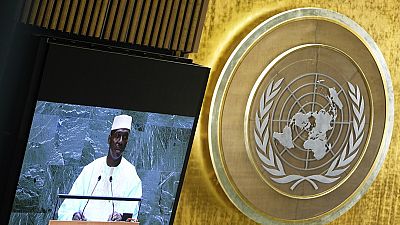

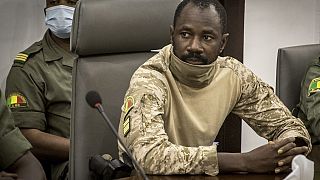
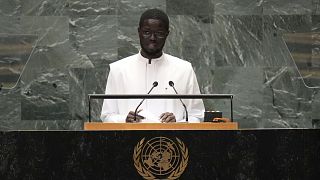
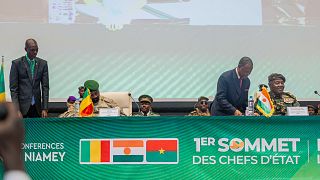

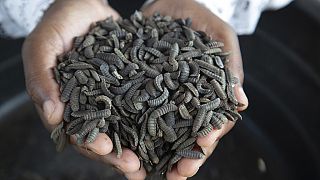
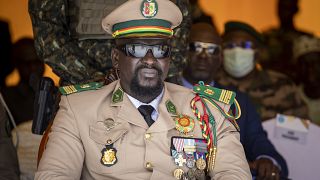
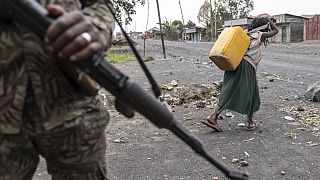
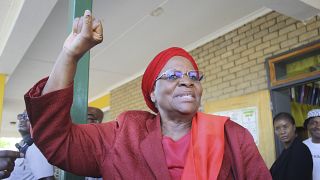
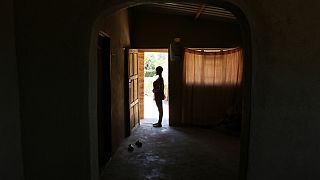
00:50
Burkina summons newspaper head over Mali reporting
02:06
Chad complains it is fighting terrorism “alone" in the Lake Chad Basin
01:28
CAF Champions Leagues kicks off, ES Tunis - Djoliba AC to clash in opener
01:03
Mali’s junta appoints military general as new prime minister
01:42
Niger: Conference in solidarity with the Alliance of Sahel States
00:50
Mali: Civilian PM sacked after criticizing junta, cabinet dismissed